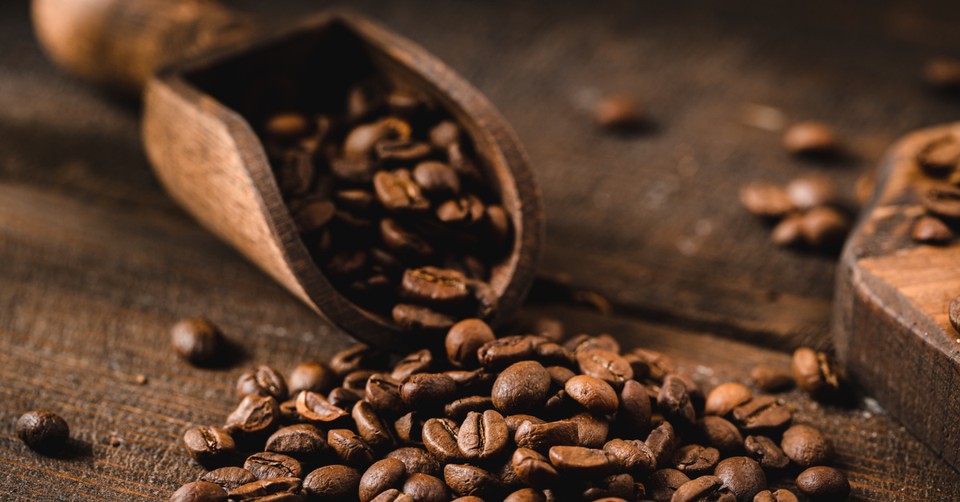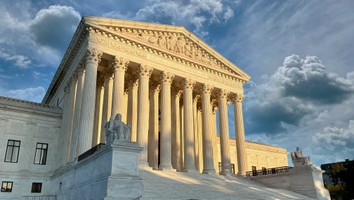John Piper Is Right about Christians and Caffeine

In this article from The Christian Post, pastor and theologian John Piper was asked about caffeine.
As a pastor myself with a background in health and fitness, I’d like to add a few important facts on how it affects spiritual health.
Let’s Begin with Anger & Irritability
Why are so many Christians angry and irritable? I believe that it's because most are addicted to something that is harming them.
Addiction to caffeine, for example, often fuels angry temper tantrums and explosive outbursts. It’s a powerful stimulant that fuels irritability and a quick temper (hot-headed).
The Diagnostic and Statistical Manual for Mental Disorders lists caffeine-related disorders such as caffeine intoxication, caffeine-induced anxiety disorder, and caffeine-induced sleep disorder—all can lead to angry outbursts, severe anxiety, and extreme irritability.
A Constant State of Stress
Don’t get me wrong, as a person who once loved a few strong cups of coffee, I understand that moderation is the key. However, most can’t go a few days without it, they’re lucky to go a few hours.
Caffeine intake in the form of energy drinks, soda, tea, and coffee is highly addicted and damages health. This is one reason why we are seeing a rise in anger among Christians. Caffeine keeps the body in a constant state of stress resulting in adrenal fatigue … no wonder it breaks down often and why many never overcome fatigue.
Contrary to popular belief, stimulants don’t actually help fatigue; they contribute to it by robbing Peter to pay Paul. The short-term results do not outweigh the long-term damage.
Opposing the Fruit of the Spirit
Granted, I don’t believe that everyone will be free of anger and anxiety. We live in a very sinful world that often results in sinful attitudes; however, we cannot throw the baby out with the bathwater and dismiss one catalyst for anger and anxiety: caffeine.
Poor choices in this area zaps energy and robs from life. Poor nutrition affects us negatively in several different ways. High levels of caffeine or nicotine lead to irritation, anger, impatience, and anxiety… not good qualities to possess. They are the exact opposite of the fruit of the Spirit.
As a side note, the majority of people I’ve counseled who damage their family through anger are often addicted to caffeine, nicotine, alcohol, drugs, and so on. Clearly, health plays a vital role in our overall attitude. When we feed the body what it needs, it will run better.
Why Quitting Is a Nightmare
If you can avoid empty foods and limit caffeine and junk food consumption, you’ll be well on your way to better health. We must remove addictive substances that undermine health. I vividly remember a comment from a clinical nutritionist that motivated me, “Discontinuing caffeine intake leads to significant improvements in health…far more than just dieting alone.” He also made the connection between depression, anxiety, and panic attacks to excessive caffeine.
Since caffeine runs along the same biochemical pathways in the brain as cocaine, opium, and amphetamines, quitting can be a nightmare because it too is a drug.
My suggestion is to back off day by day until intake is very minimal, and use organic green tea (light caffeine) whenever possible. You’ll be shocked by the results. Granted, the first week to 10-days may be torture, but it will be worth it. The withdrawal symptoms alone reveal the power of this drug. I was fascinated to read that the logo of a very popular coffee franchise represents a seductive image that allures and entices. How ironic.
Caffeine Related Disorders
The Diagnostic and Statistical Manual for Mental Disorders even recognizes caffeine-related disorders such as caffeine intoxication, caffeine-induced anxiety disorder, and caffeine-induced sleep disorder. These can begin with even minimal doses. Increase the amount to 500mg. of caffeine (the amount found in approximately 24 ounces of coffee) and these symptoms are dramatically increased.
All this can lead to angry outbursts, panic attacks, severe depression, and extreme irritability. This begs the question, “How many are suffering mentally and physically simply because of poor health—continuing the addiction rather than removing the cause of the problem?” Not in all cases, but in most, depression, anxiety, irritability, and so on, could be severely curtailed if health (spiritual and physical) was a priority.
Sleep Remains Elusive
In the same way that a hiker feels released, energized, and unburdened after removing a 50-pound backpack, you’ll feel released and energized after removing stimulants. Contrary to popular thought, the body cannot acquire restful sleep after consuming caffeine. The only reason most people fall asleep after consuming it is because of sheer exhaustion.
With caffeine in the system, deep sleep vital to health and recovery remains elusive; therefore, we wake up exhausted instead of refreshed. I became a more patient, kind, and easygoing person when I quit abusing coffee. I never realized how much it was contributing to my anger, irritability, mood swings, and anxiety until at least a week after weaning off, and the withdrawals brought out the worst in me.
I Always Made Excuses
I always excused my poor attitude with statements such as, “I had a bad day. I’m under a lot of stress. I’m tired.” Ironically, I was the primary cause of my “bad” days, stress, and fatigue. As much as I wanted to be filled with the Spirit, I was feeding my body a substance that was counterproductive. That always leads to disappointment, frustration, and failure.
But be encouraged, my books on addiction and fitness are all available as free downloads here.
Image credit: ©Getty Images/Alvarez
The views expressed in this commentary do not necessarily reflect those of CrosswalkHeadlines.
Shane Idleman is the founder and lead pastor of Westside Christian Fellowship in Southern California and the WCF Radio Network. More can be found at ShaneIdleman.com. Free downloads of his eBooks can be found at www.WCFAV.org. Visit him on Facebook and Twitter. Subscribe to his new podcast, Idleman Unplugged. You can also follow Pastor Shane on the free speech platform Parler.
Originally published April 10, 2024.







